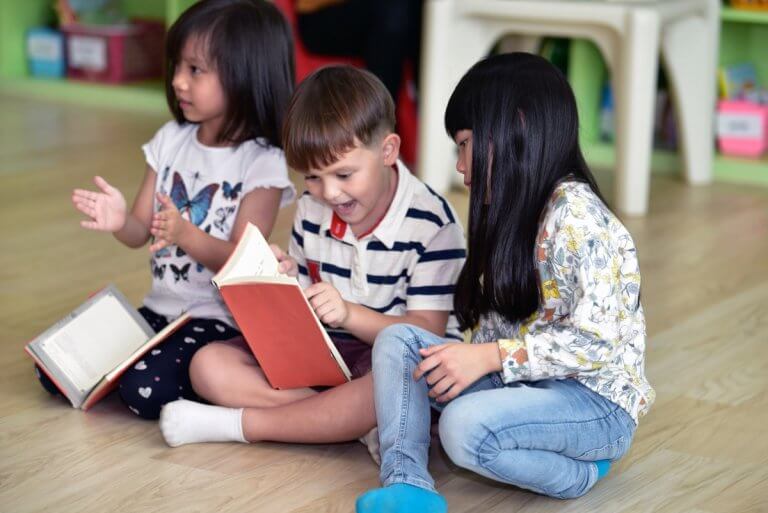
Set to open officially in 2020, Jinseki International School is Asia’s first European-style boarding school, located in Japan and established by NEED (Next Educational Environment Development).
Dubbed the first of its kind in Asia, the international school has some unique features that sets it apart from the rest.
International schools are aplenty in Asia, but they generally focus on a specific curriculum – British, American, Australian, etc.
In an exclusive interview with Michael Rob Gray, Headmaster of Institut Le Rosey in Switzerland and advisor for NEED, he shared details about what makes this school truly stand out.
Firstly, it’s located in the scenic and pristine Chūgoku Mountains in Hiroshima Perfecture. He said, “The children will be immersed in a healthy lifestyle, stemming from their log cabin accommodation and the beautiful, natural surroundings.
“Also, there will be modern libraries and learning spaces. Classes will be small so that it’s easier for students to get more attention from the teachers. They will be open to nature and enjoy being part of a community.”

Students will stay in rustic yet well-maintained log cabin. Source: Jisenki International School
Children will get to experience the beauty of the waterfalls, rivers and mountains through all four seasons of the year, as well as nearby natural attractions like the white sand beach in Ohama Seapark and Hiroshima City, which is a two-hour drive away.
Food cooked at the school will be fresh and healthy, perfect for growing children, sourced from highland vegetables and livestock, as well as an abundance of seafood from the Seto Inland Sea.
Gray said that sending children to boarding school is normal in the UK and some European countries but it has yet to fully catch on in Asia due to reservations and misconceptions about the boarding environment.
“Some parents are initially hesitant to send their child away for school, but after they do so, they actually find more advantages than disadvantages,” he explained.
“In my school, we hear parents telling us that their relationship with their child actually gets stronger after some time in boarding school.
“When they come home from breaks, they are more mature and independent because they had their own freedom while in school. They are more disciplined and polite to their parents, which leads to a healthy relationship.”

A rough artist impression of the school. Source: Jisenki International School
What’s unique about Jisenki is that it intends to prepare young students (6-12 years) for any boarding school in the next stage of their lives.
“We find that for some students, going to a full-on boarding school in Europe, a relative distance away from families in Asia, at such an early age can be difficult. So at this school, we prepare them for boarding school at the secondary level while still being situated in Asia so it’s not too far from their home countries.”
This is why it’s called a European-style school, as it’s ideal for parents who are considering sending their child to a boarding school in Europe in the future.
The curriculum will be largely based on a blend of what’s taught in Japanese and English schools, providing the basics of education that will prepare students for schools in Europe.
Another unique aspect of the school is that it focuses on bilingualism. Classes will be taught in both Japanese and English, but children are also encouraged to learn their mother tongue as well.
Gray said, “We are hiring a diverse group of teachers so that students from all races and backgrounds can develop their language skills. For example, we would encourage a student from China to take classes from a Mandarin teacher so he doesn’t lose touch with his native language.”
Students get to enjoy a less intense academic curriculum as well, with more focus on a well-rounded education where children get to learn from activities such as stargazing, theatre, games, sports, and more.

Children playing during the Jisenki Summer Program. Source: Japan Times
Gray said that while many parents want their children to be involved in more activities, carting them off from one extra-curricular activity to another can be stressful.
“Busy parents with full-time jobs and other children to take care of often find it strenuous and stressful to keep up with the active lifestyles that children have nowadays. They want what’s best for them, but time makes it hard.
“At a boarding school like Jinseki, they are always learning – in and out of the classroom. All their extra-curricular activities like music and dance are done at the school so parents can rest easy.”
As a sort of ‘trial run’, the Jinseki Summer Programme was launched, seeing students enjoy all the benefits of the school in a two-week residential summer camp.
Now in its third year, it has proved very successful and children love spending their summer doing fun activities and making new friends.
Interested parents can still sign up for the 2019 Summer Programme, or check out a briefing at the school construction site to get a sense of the environment and receive further information about the school.
Liked this? Then you’ll love…
7 things you can relate to if you went to an international school
A new Japanese-English boarding school is opening in the Chūgoku Mountains







